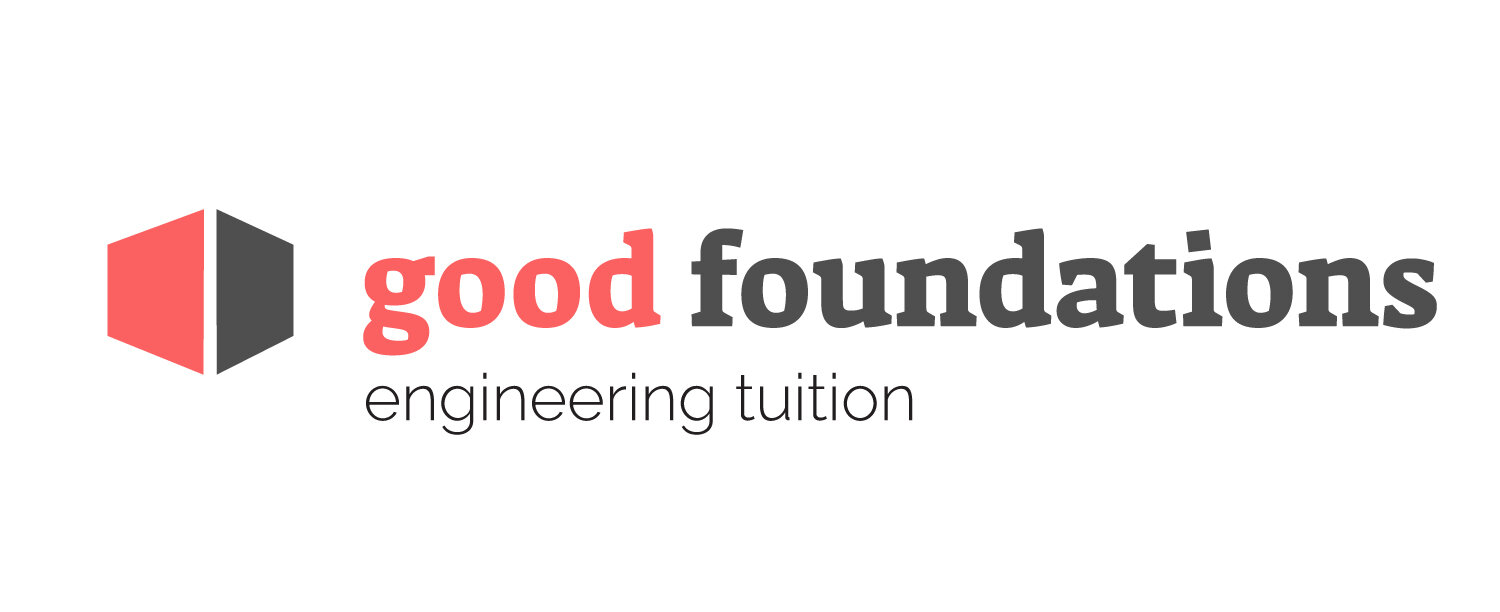Renewable Energy - Opportunities for engineering graduates
An engineering degree is a versatile foundation that paves the way to myriad career possibilities. The analytical thinking and problem-solving skills honed during such a program are in high demand across various sectors, even those that may not directly relate to traditional engineering. For instance, during the academic year 2019-20, while 60% of engineering graduates transitioned into engineering-specific roles, a substantial 40% leveraged their skills in diverse non-engineering fields.
Former Good Foundations tutor, Simon, is a prime example of the non-linear trajectories an Engineering Science degree can facilitate. Since graduating in 2011, Simon's passion has steered him beyond conventional engineering design to specialize in the economic and technical modeling of renewable energy systems. Today, he is part of a pioneering team at Energy Vault, a California-based energy storage startup that's at the forefront of sustainable technology.
A Conversation with Simon: Insights into Renewable Energy Careers: In this feature, we delve into a conversation with Simon, uncovering his journey in the renewable energy sector. We explore the challenges, the breakthroughs, and the rewarding aspects of his work. Simon also shares his perspective on the burgeoning opportunities for engineering graduates eager to contribute to the renewable energy landscape.
Hi Simon, how are you?
Very well thanks. I’m working some exciting projects at the moment - its an exciting time for the energy storage industry.
You studied Engineering Science at Oxford. Why did you choose to study a general engineering degree?
I had a natural aptitude for maths and logic and engineering seemed more practical and interesting then maths. I wanted the challenge of an engineering degree and I knew the job opportunities at the end of the degree would be good. The advantage of doing a general engineering degree was the ability to have a broad look at engineering across multiple disciplines. I enjoyed the variety and found many of the specialisations interesting.
Can you reflect a bit more on the things you enjoyed about your course?
I enjoyed the level of tuition and support at Oxford, I think the teaching enables you to reach your highest level. The broad topic coverage meant that it was a great opportunity to find and explore areas that interested me as they became apparent. In hindsight this was just as important as achieving excellent results.
There was a very strong focus on academics and pure science – a more practical course involving design, business considerations and teamwork could have added more fun and been useful in the workplace.
After graduating did you consider working as a civil (or other) design engineer?
Yes, I was very attracted by Arup, Airbus design team, and BP reservoir engineering. The scale of the projects, working locations, and huge networks all seemed very exciting.
What was your first role out of university?
I wanted to experience the buzz of the London financial sector so decided to work for an investment company. I chose a role where maths was a core part of the work. The renewables sector was growing in the UK and there was a big demand for roles that combined economic modelling with technical understanding. Engineers fit perfectly into this position due to their combination of technical knowledge and analytical skills. I was relied upon to model the technical and financial performance of solar and biomass energy projects in order to justify the investment case.
Can you tell me about your overall experience of choosing a career after graduation?
The hardest thing after graduating with an engineering degree is deciding what to do because there are so many options available! I think it is important to try to be your authentic self through the process to increase the likelihood of finding and field of work and a company that resonates with you.
Even though you might be an excellent candidate and a good fit for a role, interviews and assessment centres are an important part of the process. These should be practiced to give the best chance of success.
An internship is a good way of getting an idea of what sort of organisation you might want to work for. These generally happen in a summer break before starting your final year at university. Opportunities tend to be advertised starting from November the year before. Similarly graduate roles are also advertised early in the academic year so it’s worth being proactive and looking for opportunities.
Why did you decide to work in the renewable energy sector?
I was excited by the large projects and the speed at which the world was changing its generation and distribution of energy. I wanted to be part of that change. It is an emerging field that does not yet have defined, established boundaries. It is an area where engineers need to draw on their broad range of knowledge to make things happen.
Also renewable energy is in demand around the world and I was excited by the opportunity to travel.
Do you see many roles for engineering graduates in the renewable energy sector? Where would you recommend a civil engineering graduate look for opportunities?
I see plenty of roles in both large and small companies. Well-known companies with good graduate schemes are often a good place to start. Big engineering consultancies such as Mott MacDonald and AECOM work on all sorts of large energy infrastructure projects. Because they are multi-disciplinary you can experience a broad range of projects and meet highly competent people working in all sorts of areas.
A lot of the big oil companies now have excellent graduate schemes for renewable focused roles. Companies such as BP, Shell and Equinor now have large renewable portfolios as the energy world transitions away from oil.
There are also plenty of good opportunities at small companies. If you have a good leadership team, self-motivation, and skilled colleagues, you can learn a huge amount at smaller companies.
Has your experience at work changed your view of the type of work that engineers do?
Yes – engineers fill a much broader variety of roles than I previously thought, ranging from highly detailed design work to general management. A lot of project managers are involved in fascinating, wide-reaching projects that require their technical understanding but without needing the ability to design in those areas. Engineers are very well placed to manage impactful projects.
How did you find the skills learnt in your engineering degree helped you in the day to day work in technical/financial modelling?
The basics of programming is transferable to a wide range of programming languages. I was introduced to MATLAB at university which has provided me with a good foundation to grow my programming skills. I learnt about electrical systems at university which helps me to model energy systems. My maths knowledge has been important.
The current company you work with, Energy Vault, have an interesting concept they are developing. Can you tell me a little bit about their technology?
Energy vault has developed an energy storage system that uses gravitational potential energy. It is a sustainable solution to reduce our reliance on lithium-ion batteries. It works in a similar way to pumped-hydro storage but instead of lifting water the storage medium is large solid blocks. I analyse the economics of our storage projects and model the integration of our storage with larger renewable systems. As energy generation becomes more complex modelling capabilities are increasingly in demand.
Thankyou Simon for your time
No problem Will!
Note by Will W
Learn more about good foundations tutoring - follow the link below.

